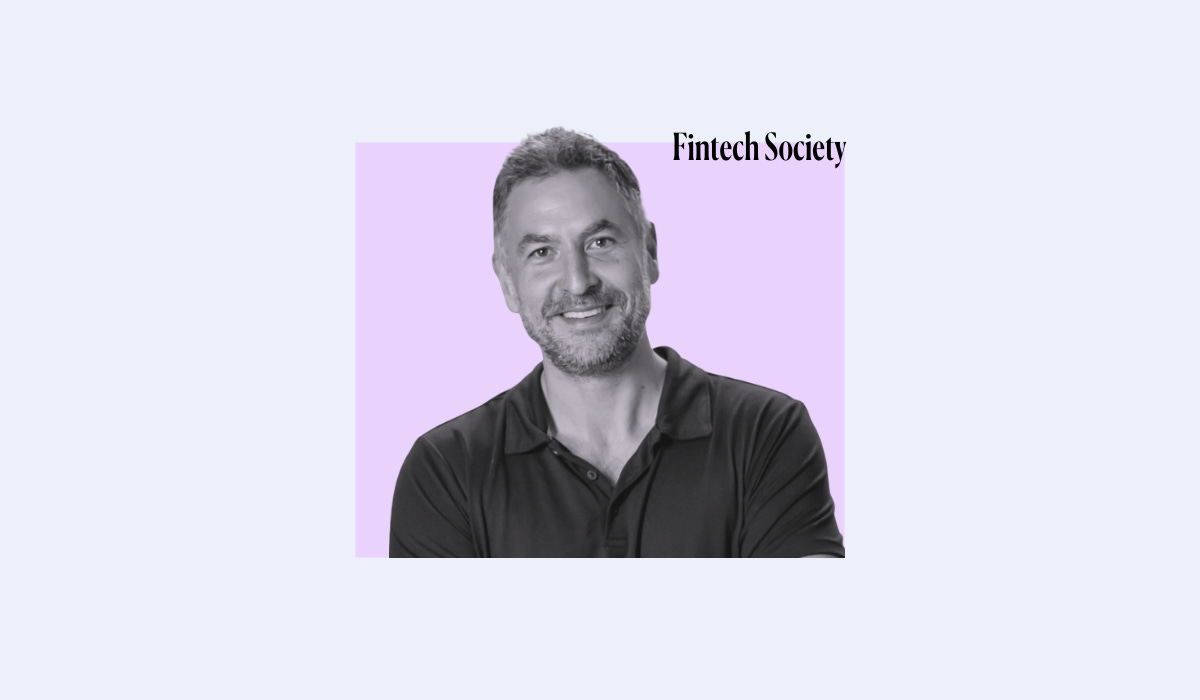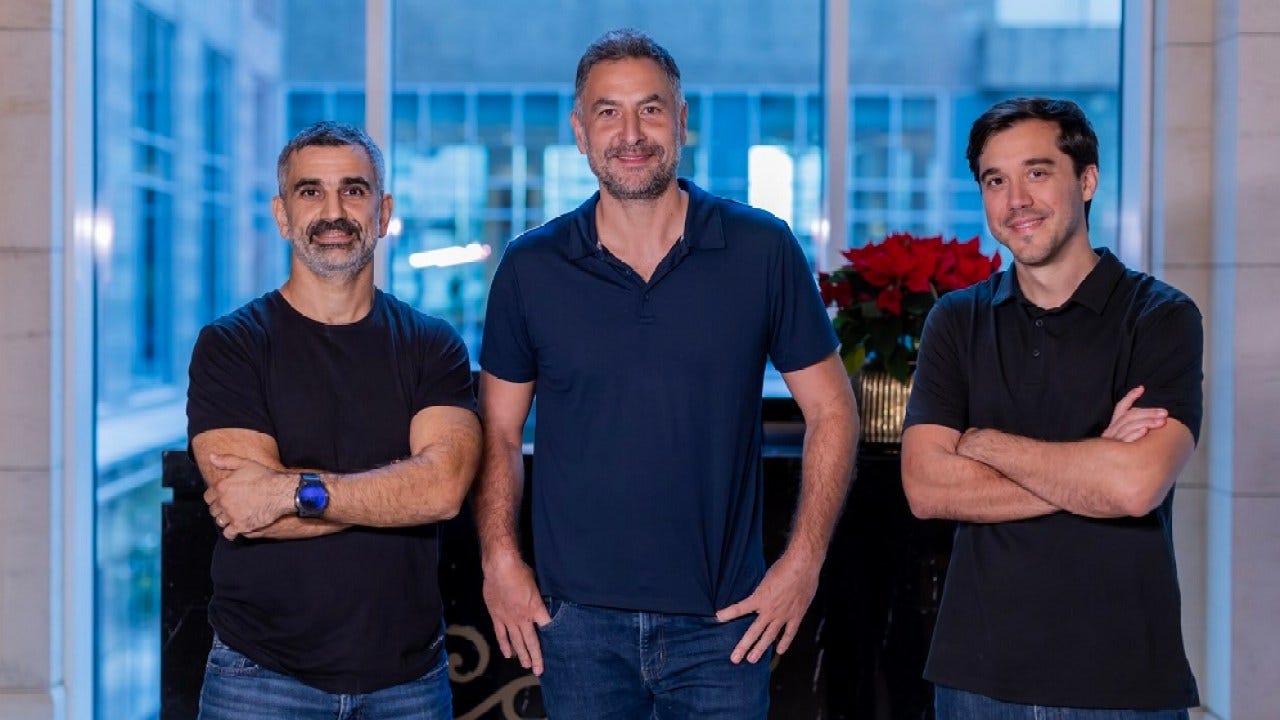It's Monday evening as I begin writing this newsletter. I'm sitting at my white table in the corner of my apartment, with a view of a Parisian street and soft light from the lamp beside me. I enjoy this setting for writing, it feels inspiring. Yet, at this moment, I find myself wondering: where do I begin this story?
A few days ago, I had a 30-minute conversation on Google Meet with Idriss Al Rifai, the co-founder and CEO of Flow48. He was in Dubai, and I was in Paris. I've conducted over 80 interviews for Fintech Society so far, and honestly, Idriss's story might just be the one with the most twists and turns.
***
Idriss grew up in Aveyron, a beautiful region in the south of France. Passionate about basketball and seemingly destined for the sport due to his height of 1.92 meters, he quickly rose to the top level. Selected for regional and then national youth teams, he joined the Levallois academy at 18. However, he didn't neglect his studies and also enrolled at Sciences Po. In 1998, he received a scholarship to study in Riverside, California, where he experienced American college basketball. This lasted for one year before he returned to France. He continued to play on the reserve team, earned his degree, but couldn't break into the first team. A major lesson for Idriss: “It teaches you humility. You can be a star on Saturday with the reserve team, and no one the next day with the first team.”
“We were managing the business with the sole aim of selling it. That's dangerous. In a 2 to 3-month process, it can work. In 9 months, it can kill you.”
With his master's degree from Sciences Po in hand, Idriss set basketball aside. He attempted to enter ENA (National School of Administration) but was rejected. However, he successfully joined the Ministry of Defense, where he carried out several missions for the Navy, including serving as a political advisor for special forces. This role took him to 13 countries. Three years later, after many stays abroad, Idriss flew to Chicago to pursue an MBA.
It was at this point that he first tasted entrepreneurship. He decided to create a startup with the goal of selling it very quickly. He developed a feature for Groupon that they didn't yet offer, catching their attention. Mission accomplished, and his first exit followed. Easy? We’ll see that after.
After this first venture, Idriss wanted to leave the US but didn't want to return to France. Having spent years in emerging countries, he wasn't interested in the typical office grind. So he moved to Abu Dhabi, where he became a consultant for BCG.
After two years travelling into the GCC for the consulting firm, the biggest adventures of his life began.
***
In 2012, Idriss launched Fetchr. The vision was very simple: to revolutionize delivery and logistics in the Middle East. Fetchr quickly expanded across the region and into several Asian markets, eventually catching the attention of Softbank and Alibaba.
After 7 years of operation, launching in 6 countries and employing 5,000 people, Fetchr entered an acquisition process. But things didn't go as planned (yes, it's the second time in 3 editions!). “We were operating in territories where neither SoftBank nor Alibaba had invested yet. This would have been their first deal in the Middle East. So, there was a very long due diligence process that lasted 9 months. And that's a real problem because when you're in exclusivity, you can't talk to other investors. And when the process drags on for 9 months, it's extremely difficult to maintain the same unit economics and stable growth trajectory. At the slightest hiccup, investors question everything. On our side, we were managing the business with the sole aim of selling it. That's dangerous. In a 2 to 3-month process, it can work. In 9 months, it can kill you.” The discussions ended there, without an offer.
Despite this complicated context, Idriss managed to exit with a private equity fund for €300 million. It sounds like a lot, but Idriss didn't walk away with much. It was far from the unicorn exit he dreamed of. A difficult story, one that reminds me of Thomas Vles, the founder of GoDutch. Putting the business aside during an exit, or constantly changing direction to please investors, can be very dangerous. And it rarely ends well. Just because you see a “Thrilled to announce our acquisition” post doesn’t mean the founders made a fortune.
Seven years later, Idriss needed a change of scenery. In Dubai, everything reminded him of this business with a failed exit. He also wanted to experience something new—a European scale-up, a different market. He no longer wanted the pressure of being a CEO, as his health had taken a hit. So he moved to Barcelona, where he became the Chief Strategy and Data Officer at Glovo. He witnessed the company's expansion from 8 to 25 countries before it was acquired by Delivery Hero for $2.2 billion. Idriss left the company when his team was downsized following the integration.
***
Faster than he had anticipated, Idriss returned to entrepreneurship and discovered the rapidly growing fintech scene in the Middle East. Major events are taking place there, including Money 20/20, which expanded into the Middle East in Riyadh. “Investors came for the LPs' money. After a while, LPs realized it would be good to invest locally. More fundamentally, the GCC is a huge opportunity. It has one of the highest GDP per capita in the world, governments are pushing to diversify away from the oil economy, the population is very young, and there's a high level of tech penetration,” Idriss explains.
In 2022, he co-founded Flow48 with the aim of facilitating access to financing for SMEs in emerging markets, starting with the UAE and South Africa. To achieve this, the fintech offers two solutions: revenue-based financing and invoice-based financing. As is often the case in lending fintechs, data is at the core of their business, and Flow48 uses open data to connect to a wide range of software to accelerate underwriting and decision-making processes.
At the end of 2023, the startup raised $25 million in a mix of equity and debt from investors including Speedinvest, Daphni, 212, Blockchain Founders Fund, Unpopular Ventures, Endeavor Catalyst, and TLG. It was Idriss’s first time raising debt. “I don’t know if it’s more complicated, but it’s different—and it takes longer. We’re building the portfolio to support large-scale debt financing from major institutions,” he explains.
A few weeks ago, Flow48 secured $69 million in a Series A round, once again combining debt and equity. The round was led by Paris-based VC firm Breega, with participation from 212, Speedinvest, Daphni, Endeavor Catalyst, Evolution Ventures, and +VC.
With this fresh capital, Flow48 plans to expand into Saudi Arabia and deepen its presence in South Africa. Of the $69 million raised, $10 million is specifically allocated to the South African market. Since launching there in May 2024, Flow48 has already deployed 25 million rands to support local SMEs.
Positioned at the crossroads of SME lending and emerging markets—two major fintech trends—Flow48 is well-placed for growth.
Oh and… If you want to boost your personal brand, you can check out my ghostwriting services. I’m behind the communication of fintech CEOs recognized by the FT, Mastercard, or Sifted.
Thomas




